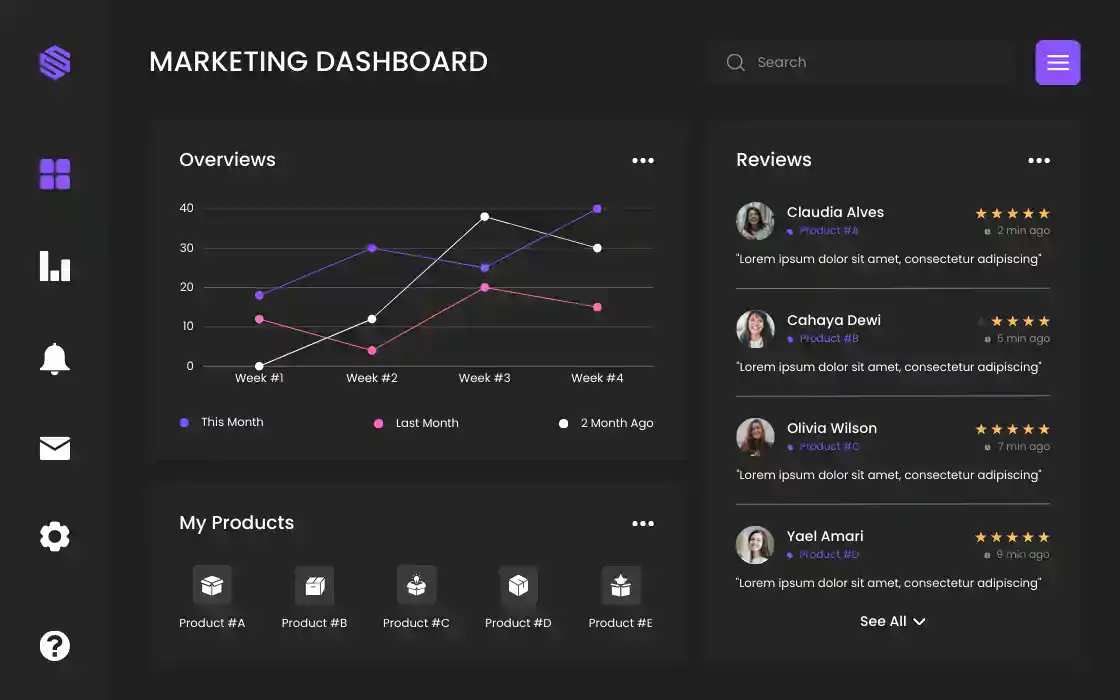Table of Contents
India’s generative AI scene is on the rise, with over 60 local startups and nearly $600 million in funding. While much of the conversation has focused on productivity, the potential for G.AI to enhance marketing strategies should not be overlooked. By leveraging its vast access to data and content, generative AI can complement human creativity and drive cutting-edge marketing efforts.
Generative AI Transforming Marketing Strategies
AI will not completely transform the marketing industry, but rather it will enhance and support the work of marketing professionals. One of the ways it will do this is by empowering predictive analytics. The collaboration between sales and marketing teams is crucial for success, and with the numerous interactions between humans throughout the sales cycle and customer journey, a significant amount of data is generated. To make sense of this data, using structured marketing report templates can help organize and present it in a clear and actionable way for decision-making.
AI and ML can analyze this data to provide insights into the future state of the sales pipeline. This allows teams to make necessary adjustments to their marketing investments. How does generative AI fit into this scenario? It has the ability to generate code lines at a faster pace, which helps developers expedite the lifecycle of predictive analytics projects.
However, Gen. AI can also enhance marketing’s responsiveness to market conditions in ways beyond predictive analytics. By utilizing generative AI applications that leverage exclusive data, team members can minimize the time spent on repetitive tasks, enabling them to concentrate on more impactful endeavors. For instance, instead of dedicating an entire afternoon to compiling potential leads, a marketing expert can effortlessly generate such a list within seconds using AI tool.

Empowering Marketing Teams: The Role of Generative AI
Generative AI has the potential to foster innovation by simplifying the creative process. In marketing teams, the collaborative effort of brainstorming and refining ideas is crucial for producing a comprehensive integrated campaign. By incorporating AI into the feedback loop, additional ideas can be generated.
While the human touch remains essential, the creative process is expedited and enriched with the assistance of AI. For instance, a generative AI tool can swiftly generate superior headlines and visually appealing designs, surpassing the time-consuming efforts of human team members.
Teams have the ability to produce vast quantities of data, and generative AI can assist these teams in maximizing the value of this information. Given the abundance of unstructured and semi-structured data at the disposal of marketing teams, proficient generative AI tools can be utilized to create impactful social media posts, landing pages, and emails that cater to specific target audiences.proficient generative AI tools can be utilized to create impactful social media posts, landing pages, sales pitch decks and emails that cater to specific target audiences.
Preparing enterprise for Generative AI
The potential of using generative AI to enhance human creativity is immense, with current use cases representing only a fraction of what is possible. To gain an advantage, businesses should establish a strong foundation for implementing this technology.
The availability of data is a crucial factor to consider when implementing generative AI. One of the significant advantages of generative AI and large language models (LLMs) is contextualization. However, enterprises with legacy, on-premise systems often face the challenge of isolated data stored in separate silos. To effectively utilize generative AI for marketing purposes, organizations should make use of cloud data platforms to consolidate all their internal data.
In addition to dismantling barriers between departments, enterprises must also guarantee effortless retrieval of their entire data. A significant portion of the data produced by teams is either unorganized or partially organized, including social media posts, emails, and textual files, among others. Marketing teams should ascertain that their cloud-based data platforms possess the capability to upload, merge, and scrutinize all forms of data.
In addition, it is crucial for marketers to collaborate with interdisciplinary groups consisting of data scientists, legal experts, and security professionals in order to actively tackle issues related to data governance and security by implementing essential safeguards. Moreover, they must verify that their infrastructure is capable of safeguarding sensitive data, including personally identifiable information (PII) and internal documents.
The utilization of Generative AI with future marketing
Generative AI provides a wide range of advantages to enhance marketing strategies, including but not limited to enhancing predictive analytics, expediting processes, fostering creativity, and enabling greater personalization.
The impact of generative AI on software and enterprises is already significant, but the journey is far from over. To stay ahead, organizations should focus on preparing their infrastructure to fully leverage the potential of this technology. By doing so, they can overcome data silos, ensure smooth access to all data types, and proactively address data governance and security issues. These are the essential elements for blending human creativity and AI to take strategies to the next level.





